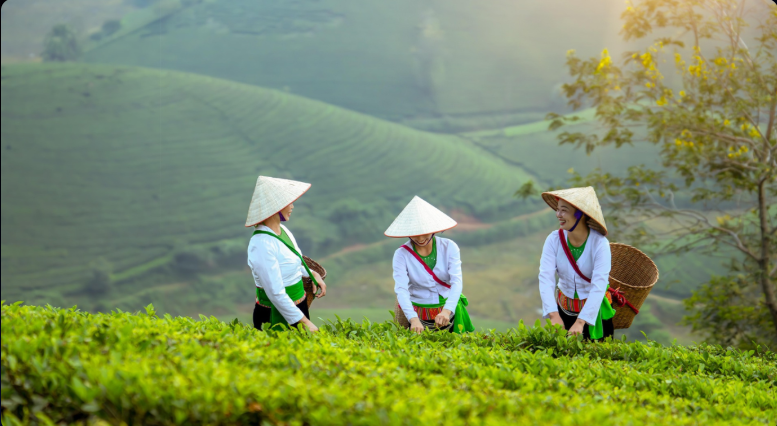How AI in Agriculture is Transforming the Future of Farming

Strong 8k brings an ultra-HD IPTV experience to your living room and your pocket.
Agriculture is one of the oldest industries in human history, but it's currently undergoing one of its most revolutionary transformations—thanks to Artificial Intelligence (AI). With rising global food demands, unpredictable climate changes, and the need for sustainable practices, AI in agriculture is emerging as a powerful solution to many of these modern challenges.
Let’s explore how AI is reshaping farming as we know it and what it means for the future of food production.
________________________________________
The Growing Role of AI in Agriculture
AI is no longer a futuristic concept—it’s being actively integrated into real-world farming practices. From drones and smart sensors to predictive analytics and autonomous machinery, farmers are now harnessing technology to improve decision-making, increase crop yields, and reduce environmental impact.
At its core, AI in agriculture is about using data—collecting it, analyzing it, and using it to drive smarter actions. Whether it’s identifying crop diseases, optimizing irrigation schedules, or predicting weather patterns, AI helps farmers make more informed and timely decisions.
________________________________________
Key Applications of AI in Modern Farming
1. Precision Agriculture
AI enables precision agriculture, which involves monitoring and managing crops with high levels of accuracy. Drones equipped with cameras and sensors can survey large fields, capturing detailed imagery. AI-powered software then analyzes this data to identify areas that need attention—such as pest infestations, nutrient deficiencies, or water stress.
2. Predictive Analytics
By analyzing historical data alongside real-time weather patterns and soil conditions, AI can forecast crop performance, ideal harvest times, and potential risks. These insights help farmers make proactive decisions that minimize losses and improve productivity.
3. Smart Irrigation Systems
Water management is a critical issue in agriculture. AI systems can optimize irrigation schedules based on weather forecasts, soil moisture levels, and plant needs. This not only conserves water but also ensures crops receive the right amount of hydration at the right time.
4. AI-Powered Drones and Robots
Robots powered by AI are being used for planting, weeding, and even harvesting. These machines can work around the clock with high precision, reducing labor costs and increasing efficiency. Drones, on the other hand, can spray fertilizers or pesticides more accurately, reducing chemical use and improving environmental safety.
5. Crop Disease and Pest Detection
AI algorithms, especially those trained with image recognition, can detect early signs of crop disease or pest infestations. Early detection is critical to minimize damage, and AI can alert farmers before the issue spreads.
________________________________________
Real-World Examples of AI in Agriculture
• John Deere has invested heavily in smart tractors and AI-based systems that guide machinery with GPS and real-time field data.
• IBM’s Watson Decision Platform for Agriculture offers predictive weather analytics, soil data, and crop insights to help farmers around the world.
• Plantix, an AI-powered app, helps farmers diagnose crop diseases by analyzing photos taken with a smartphone.
These examples show that AI in agriculture isn't just theory—it’s already at work, improving food systems and empowering farmers.
________________________________________
Challenges and Considerations
Despite its promise, AI adoption in agriculture isn’t without challenges. High initial costs, lack of technical knowledge, and limited internet access in rural areas can hinder widespread implementation. There’s also a learning curve involved, as farmers transition from traditional methods to tech-based solutions.
However, with growing support from governments, startups, and agri-tech companies, these barriers are gradually being addressed.
________________________________________
The Future of Farming is Smart
AI in agriculture represents a turning point. It offers solutions not just for increasing food production but for doing so in a way that is efficient, sustainable, and environmentally friendly. As the global population grows and climate change continues to impact farming, the adoption of AI technologies could be key to securing the world’s food future.
For farmers, researchers, and agri-businesses, now is the time to embrace innovation. AI in agriculture isn’t just a trend—it’s the future of farming.
Note: IndiBlogHub features both user-submitted and editorial content. We do not verify third-party contributions. Read our Disclaimer and Privacy Policyfor details.







